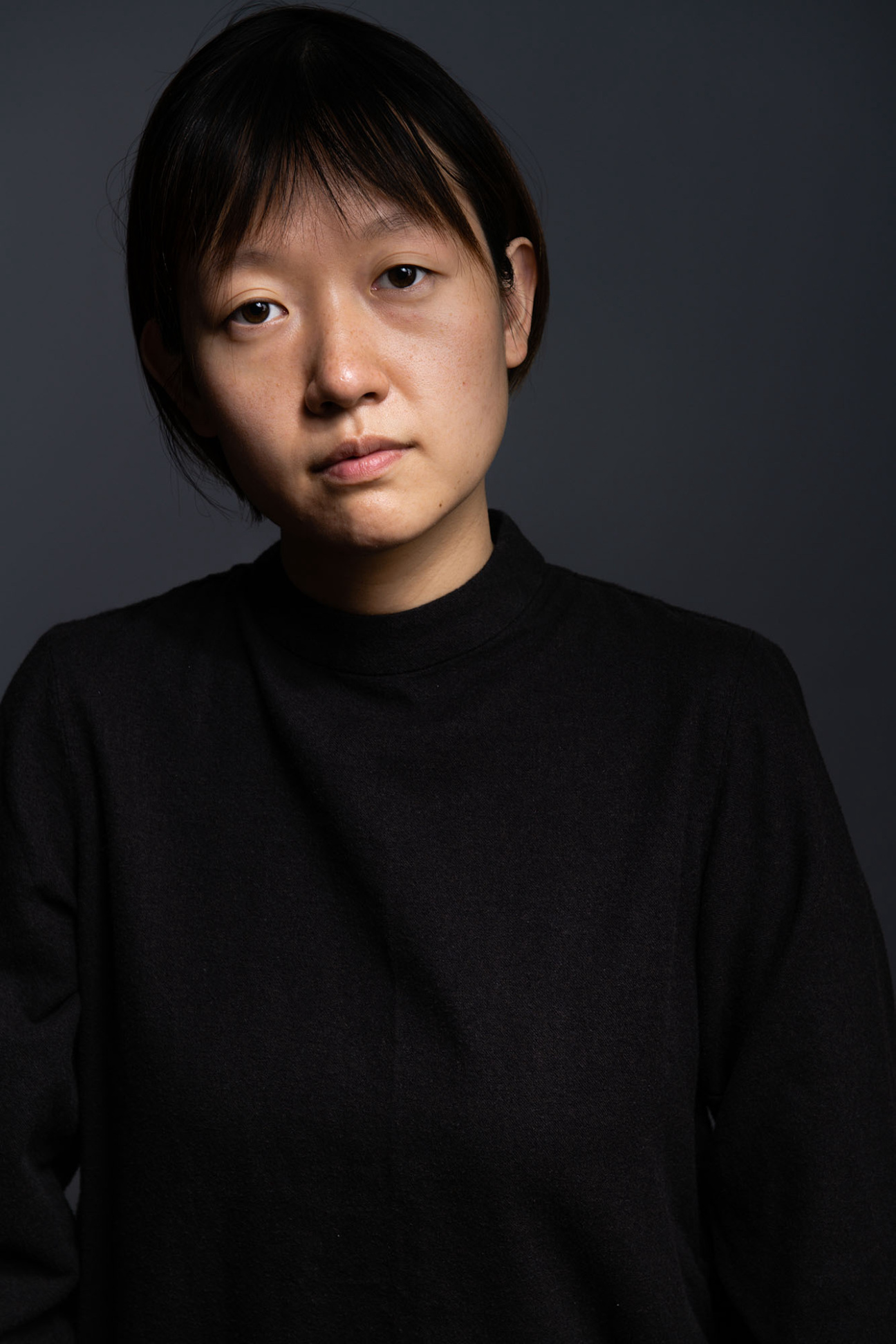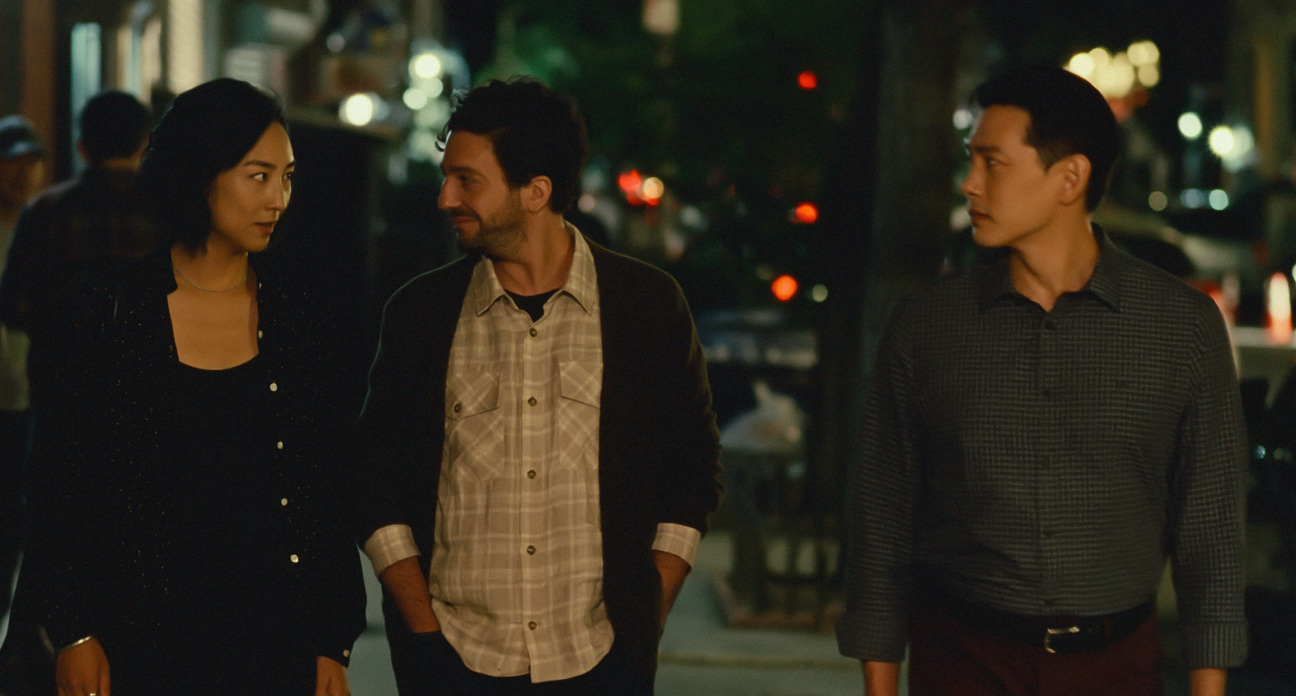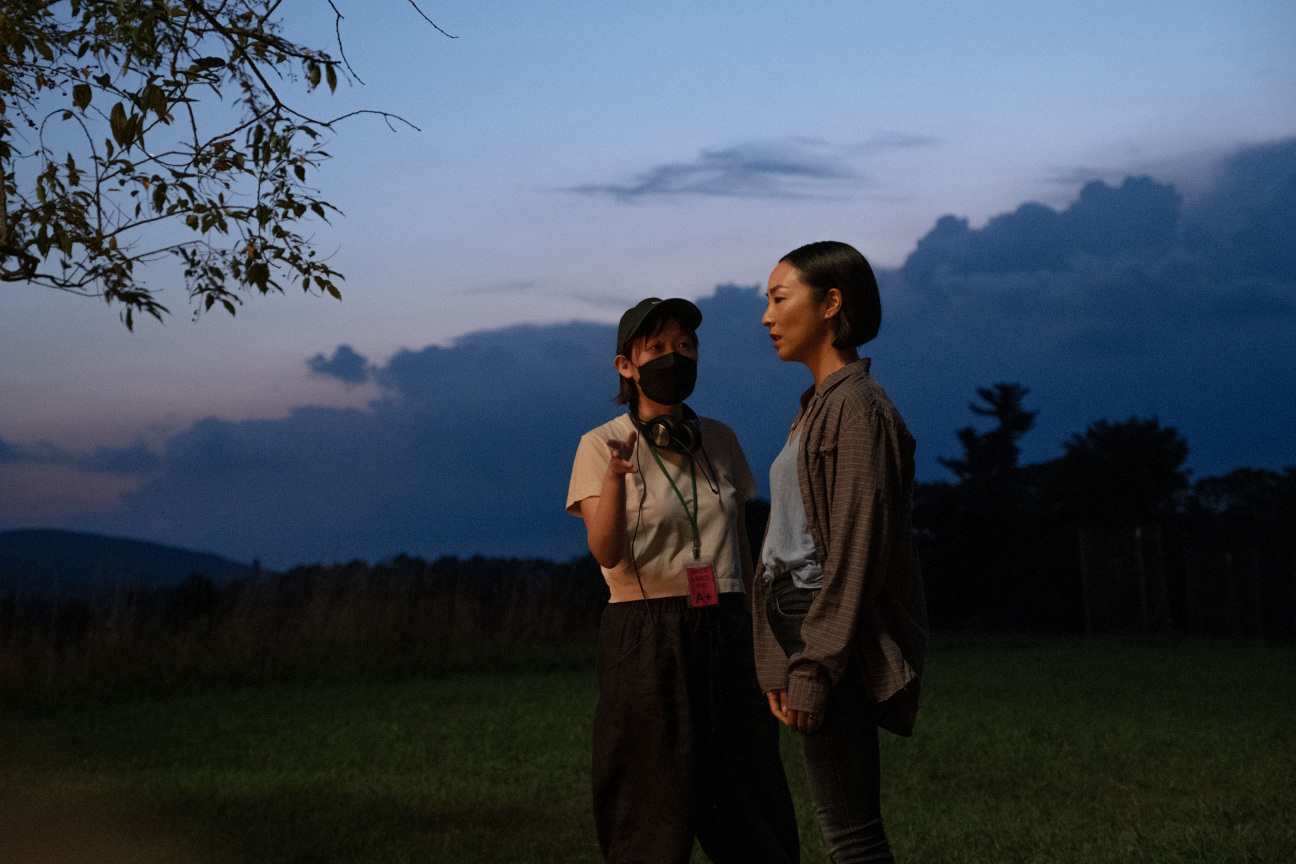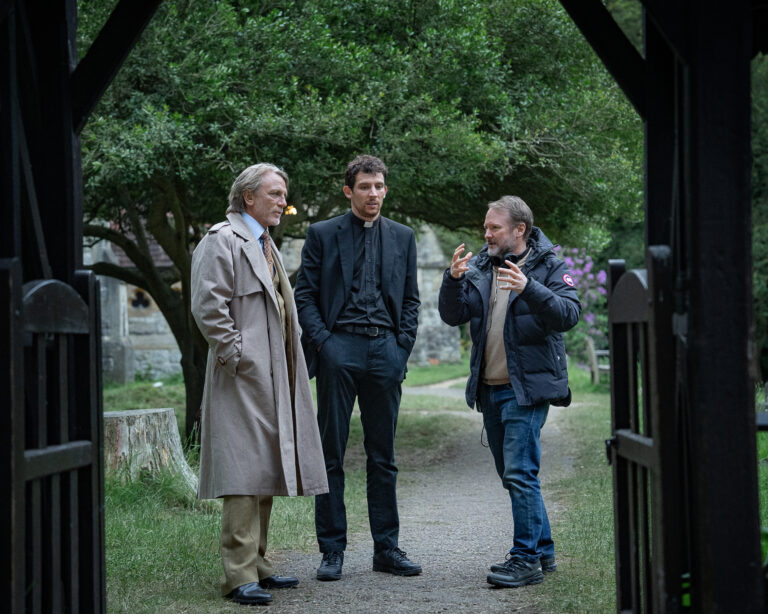
There is no shouting in Past Lives. Two men gaze longingly at the same woman, but no one storms out or lays down an ultimatum. This is a change of pace for a younger generation raised on torrid love triangles in fantasy-driven coming-of-age films, but kids grow up, and the allure of a hot-headed boy begins to wane. Instead, filmmaker Celine Song offers a debut feature, out in theaters today, rife with the type of man one might want in their real life—perhaps not as a partner on a journey across a futuristic dystopia, but as someone to buy groceries with, or as a co-signer on a cramped, overpriced apartment in Lower Manhattan.
That is where the film begins, in a bar loosely based on the East Village speakeasy Please Don’t Tell, with a clip of three characters loosely based on Song herself, her real-life husband, and a childhood sweetheart who got back in touch after years of estrangement. In the movie, these protagonists are named Nora (Greta Lee), Arthur (John Magaro), and Hae Sung (Teo Yoo) respectively. Like Song, Nora is a playwright married to a fellow writer. She emigrated to Canada from Korea as a child, and then to New York for college, where she now lives. The similarities end there.

“I don’t think about Nora as anything but a completely beautiful third person,” explains the director. “One that I believe I own, first with Greta, and then with the world. Hopefully the world, when they’re seeing the movie, they’re able to really think of her as their own, as that’s what movie characters are for. They’re meant to be for the world to feel connected to, and feel ownership of, and feel like she’s them too.”
Unlike Song, Nora is still happily working in the world of theater. She juggles her reunion with a long-lost flame from Korea with her rehearsal schedule and other responsibilities. In real life, Song left the performing arts a few years back, disillusioned after finding the flourishing, experimental theaterscape from her university studies long gone. In its place was an industry thoroughly enmeshed in the real estate market and stifled by rising production costs. “I did find people who were still doing [downtown theater], but over time became a little bit heartbroken,” says Song. “Then, as I’m having this complex relationship with theater, filmmaking really did show up to me as a bit of a love at first sight, or a new, exciting lover. It’s a honeymoon phase, I’m sure.”

Past Lives debuted earlier this year at the Sundance Film Festival, followed by a screening at the Berlinale, and was met with critical acclaim. “It’s sort of connected to what the movie’s about as well, which is that sometimes you leave something behind, and then you gain something else,” explains Song, musing on the transfer of the characters from her hands into those of others. Her striking drama, unflinching but calm in its portrayal of adult relationships, confronts its protagonists with childhood conceptions of love, romance, and partnership that are brought unwittingly to the surface.
“The project has always been about ordinary people who do extraordinary things in an everyday way,” remarks Song. “It’s not about people behaving selfishly, and people asserting and insisting on their own autonomy and their needs and their desires. Yes, of course, those desires and needs exist … but they’re still able to do this really heroic thing, which is to put it aside for the person that they care about. It’s worth remarking on.” In the comfort of Arthur and Hae Sung’s acceptance of her personhood, Nora flourishes. Intimacy surrounds her: romantic, platonic, familial.

Nora and Hae Sung’s bond is forged over college Skype calls from Korea to the States, enacted across neighboring sets that Song built and then connected with a cable. She added a throttle and intentionally degraded the quality, allowing the connection to stutter, to be lost, purposefully frustrating her characters in their desperation for each other. Nora tosses her earbuds aside in anger. Hae Sung never hurtles his laptop across the room.
In adulthood, Arthur and Nora discuss her relationship with Hae Sung in their small kitchen. Nora is getting ready for bed. Arthur looks slightly worried, uncomfortable perhaps, but not mad. “I think I just missed him,” she admits. “Did he miss you?” wonders Arthur. “I know men in my life that are able to do this for people, which is to care for someone,” says Song. “There’s a kind of a funny impression that masculinity is about exerting power, or force, or a show of strength that is external.”

In one scene, Hae Sung nervously runs his sweaty palms down his neatly pressed slacks. A few times, Arthur remarks upon just being another Jew from the city. Nora, with her combination of superb styling and Lee’s natural charm, looks lovely in every frame. Still, her relationship to these men feels perfectly matched. “My joke that’s not really a joke is that Arthur and Hae Sung are both sex symbols, but not in a way that you see them in a magazine,” says Song, with a laugh. “It’s not because of the abs or whatever you might think of when you think of really good looks.”
Song characterizes these characters’ relationships using the Korean concept of inyun, which loosely translates to the sentiment of fate, or being fated. Behind every encounter is a layer of inyun. “I wanted to introduce the concept to the audience because the idea of inyun is the only way that you could really describe the relationship between Hae Sung and Nora,” says Song. “They have a connection that spans decades, but you can’t really define who they are to each other … The connection is special, and deep and meaningful, but there is no label for it. It’s the kind of thing that may come and go. It’s a little bit of an ineffable feeling, or a feeling that you cannot describe when you’re with that person, the longing and everything.”
In Past Lives, Song has created a world in which every relationship has value and is given the space required to blossom. Here, hearts may ache, but they aren’t broken.










 in your life?
in your life?

